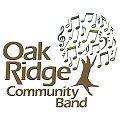Leaderboard
Popular Content
Showing content with the highest reputation on 01/11/2011 in all areas
-
No, all this comes down to is taste. According to what you're saying, I'm in college to learn how to experiment according to some composition professor's taste in music. Basically, the professor has already decided for me what is "relevant experimentation" or something (don't know how to say this any better)... meaning if I want to experiment with tonal, traditional styles, the professor decides whether it's legitimate experimentation. That's NOT the professor's job to decide for me where and where not to experiment. If I'm learning how to become a computer programmer, there's a specific set of skills and syntax to learn about writing programs, even if there are a plethora of ways to write a program differently. It's not THAT much different from music composition in that regard. I'm taking computer programming courses now, as a matter of fact. I'm amazed at the connections I can make (or the lack thereof in my experience) with how I should have been educated compared to what I actually experienced. It all comes back to this rhetoric of what I assume we're calling "high-modernism." Along a similar vein, it's not the computer programming professor's job to decide for me whether to use C++ or Python to write a particular program for a project. I might want to learn one or the other for any number of reasons, while the instructor may need to use one I'm not familiar with in class to teach some concepts. It's fine to introduce me to another language and its syntax, but if the only reason for one language to be used is because there's too much written about others (a completely arbitrary reason to begin with), I'd be surprised if that programming professor even kept their job after more and more students complained. I'm not there to "please" the professor personally, I'm there to learn core concepts in music and then demonstrate that I understand them. This MAY include material and techniques of 20th Century music, but certainly NOT exclusively. Yet, that was precisely my experience beginning some in undergrad and escalating even more in masters. All along the way, there were opportunities for a professor to help me correct syntactically obscure material (the basics, if you will) where the professor either didn't know or didn't care to. Sorry, I call bullshit. If I was a computer scientist and was treated that way, the professor would get canned. In music, it should be no different. That being said, I don't blame these professors... I BLAME THE INSTITUTIONS THAT MORE THAN LIKELY AND IRRESPONSIBLY PLANTED IDEOLOGICAL VIEWS ON MUSIC IN THE MINDS OF THESE PROFESSIONALS, WHICH HAS THE UNFORTUNATE CONSEQUENCE OF SIGNIFICANTLY DISABLING THESE OTHERWISE KNOWLEDGEABLE PEOPLE FROM BEING CAPABLE OF PERFORMING THEIR JOBS. Thank you. THANK YOU! I knew I wasn't the only one to encounter this, and as lacking as I may be in articulating my concerns, at least the experience is shared to some extent. 1) This NEVER happened in my experience... EVER! In my masters work, I was actually writing my 4th or 5th modern work when I asked, "What about pop or general songwriting? Any chance we could do some of that?" Answer: There are colleges out there where you could go to study that, like Full Sail (yeah, a FOR-PROFIT online college that charges an arm and a leg for a degree far below my credentials). I was blown away. 2) Yeah, that more or less happened. 3) Nope, that was really NEVER the case either. Basically, if I wrote a "modern" work, there was a great deal of discussion and analysis about it, then discussion of my next work and what modern concepts I could incorporate in my next work. What Ferk is saying is that, even if you dislike what you're hearing, you need to know that it is out there and to listen to it for those small theoretical morsels of material that you can use in your work. I agree with this in part, but it's HARDLY the ONLY objective in learning how to compose. What SSC is saying is something I've already addressed. My view on the matter is: Experimentation - Good... Experimentation Only - Bad. Learning how to compose is about more than learning how to experiment.2 points
-
I repeat. Not ONCE in 6 years of college (yeah i was slow. Got two degrees though.) did I EVER hear a professor consider even outdated and even factually incorrect modes of thinking as irrelevant or "too traditional." Not in music, philosophy, history, language, engineering, or social science. Again, I point to the fact that I was condemned for not knowing the fundamentals, a problem that plagues my music even now... Where the hell did you go? Let's get the name of this school out so we can at least tell people to avoid it, if this is truly the case.2 points
-
Cool, Peter. Glad I could help. I do fancy myself a wordsmith. :lol: Please let me know if you need more verses.1 point
-
Ok, do you mean hopless as in a beer without any hops? Well that would be a sad beer wouldn't it? Just kidding. I like the timbre of steel guitar and bass with the piano but you have here a sketch. The opening is nice but it seems to thin out unnecessarily and then the transition is too thin. The second part where you lead into a part where the piano digresses and then the guitar comes in with its angular counterpoint is cool. The next transition works better because you referred earlier to a disintegration of some sorts without the piece coming to halt. Nice job going into a sort of a rock tutti. Overall, a good sketch of some very good ideas. You don't have to do much with some of the material but I'd say you have to figure out a form for your piece - is it going to be an AABACoda? ABACAB, where the points of disintegration are between A and C and to A? Is the disintegration of the material ever complete? I hope you get what I am saying.1 point
-
Ahhh... machine gun effect alert! Seriously, the piano is desperate for humanization. Especially in the beginning. I quite like this piece, especially the guitar with that crunchy dist and reverb. Gives a really cool ambient feeling. But I'd say a bit too much reverb on the drums. And is that a compressor on them? If yes, I would advise not to compress the cymbals... at least not as much as the rest of the kit. It gives them a really ugly sound, like clipping. I'm familiar with the death note score, but I was under the impression you would go for something more explosive like the main theme, but this was nice none the less.1 point
-
Experimenting has to do with doing things you normally don't do. If someone writes only serial music I'd have them do something totally different, and so on. It so happens that -MOST PEOPLE- end up only writing at first in old styles, so naturally they lack experience in everything else so that's what they should be doing then. That's why it always ends up coming down to experimenting with modern techniques because people don't generally do it on their own for all the reasons people keep bringing up in this thread. It's the entire point of an education to shake you up and make you discover things, and that's only possible if you're doing things rather than sitting around scalloping. Er, but he IS your professor. He gets to decide this, it is his job really. You can always write whatever you want anyway outside of college. You can always do whatever you want outside of having anything to do with that professor. If you're expecting the prof to just sit there and tell you how great everything you do is then what's the point? Comparing music to computer science is also rather idiotic, as there are no "basics" in music beyond explaining what 4/4 may be or scraggy like that, but even then you can literally pick off composition at any stage in music history and go from there. There's no "beginning" that we can say "ah well it all starts from here" since everything is a chain from before we even had recorded history of it. I also doubt that by "basics" people mean medieval music/aesthetics (as far as we can go before it all becomes a historical salad of anecdotes,) as that would imply a lot of things that have absolutely nothing (and run rather contrary) to later tendencies that are much more popular. And that's the thing really, let's replace "basics" with "popular." Here in Germany there's a pretty easy system, everything that's 20th century onwards isn't covered in music theory thus it's a focal point of composition. Everything that's previous to the 20th century is covered in music history/theory, such as counterpoint, choral writing, harmonic analysis, form studies, etc etc etc. Obviously composition classes don't touch those things in general unless what you're writing is borrowing from that, but then there's a line between it being a composition and it being a theory exercise. That's up to the teacher to decide and figure if it's worth his time to look at it as a composer, otherwise it could just devolve into pointing out "errors" in an exercise. "Core concepts" in music like what? What the hell does that even mean? This is retarded also. I mean seriously guys, you guys never took theory courses? Music history? Analysis? Any of that? I've done months of seminars and courses about Schubert, Liszt, Brahms, Mahler, Machaut, Faure, ETC ETC ETC ETC, enough to strengthen the gently caress out of my knowledge of classical styles. Why the gently caress would I bother my composition teacher with things that I'm already getting so much of by analyzing nonstop past music? Granted I studied musicology, but seriously, any of my teachers for theory would gladly correct/comment on style copies I would make (which I did, quite a few actually!) I would in fact make sonata segments to mimic what I was learning in form studies, because I found that fun to do. All this stinks of lazy honestly. If either of you wanted to "strengthen" your classical/whatever knowledge, I'm quite sure there must've been ten million courses available with tons of professors that specialize in this. Hell I took even baroque style recreation for three goddamn years with an expert harpsichordist and we viewed TONS of material from all over the baroque era, with analysis and all. If I had gone to my composition teacher with this crap he would've asked me why I wasn't doing all of the above instead. I mean, certainly when we DID analyze music (my composition curriculum included ADDITIONAL classical analysis as well as instrumentation/orchestration/etc) it was very interesting to hear my teacher had to say about Schubert or whoever it was at the moment, seeing it composition-wise rather than strictly theoretically (though this was also hardly the case by the other profs who were all keen on talking about the musical aspect rather than just theory, specially in composer-specific seminars.) I used my time with the composition teacher to work on everything ELSE that I couldn't cover with all the other 20 or so courses I had to take. Surely you guys never had any interest in modern music to begin with, but that leaves me wondering why study composition then instead of theory? Become a theorist, that's much more suited if all you want to do is do style copies.0 points





